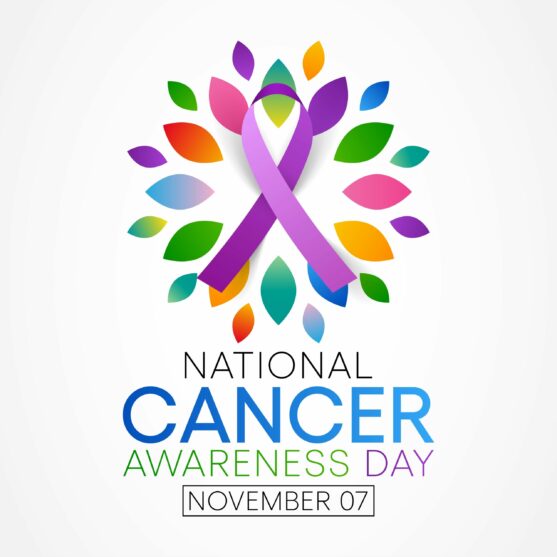 Cancer is a major healthcare concern in India, with nearly 1.1 million cases being reported every year. India observes National Cancer Awareness Day on 7 November every year to raise awareness about early detection and lifestyle choices that increase our risk of cancer.
Cancer is a major healthcare concern in India, with nearly 1.1 million cases being reported every year. India observes National Cancer Awareness Day on 7 November every year to raise awareness about early detection and lifestyle choices that increase our risk of cancer.
National Cancer Awareness Day was first announced by Union Minister Harsh Vardhan in September 2014.
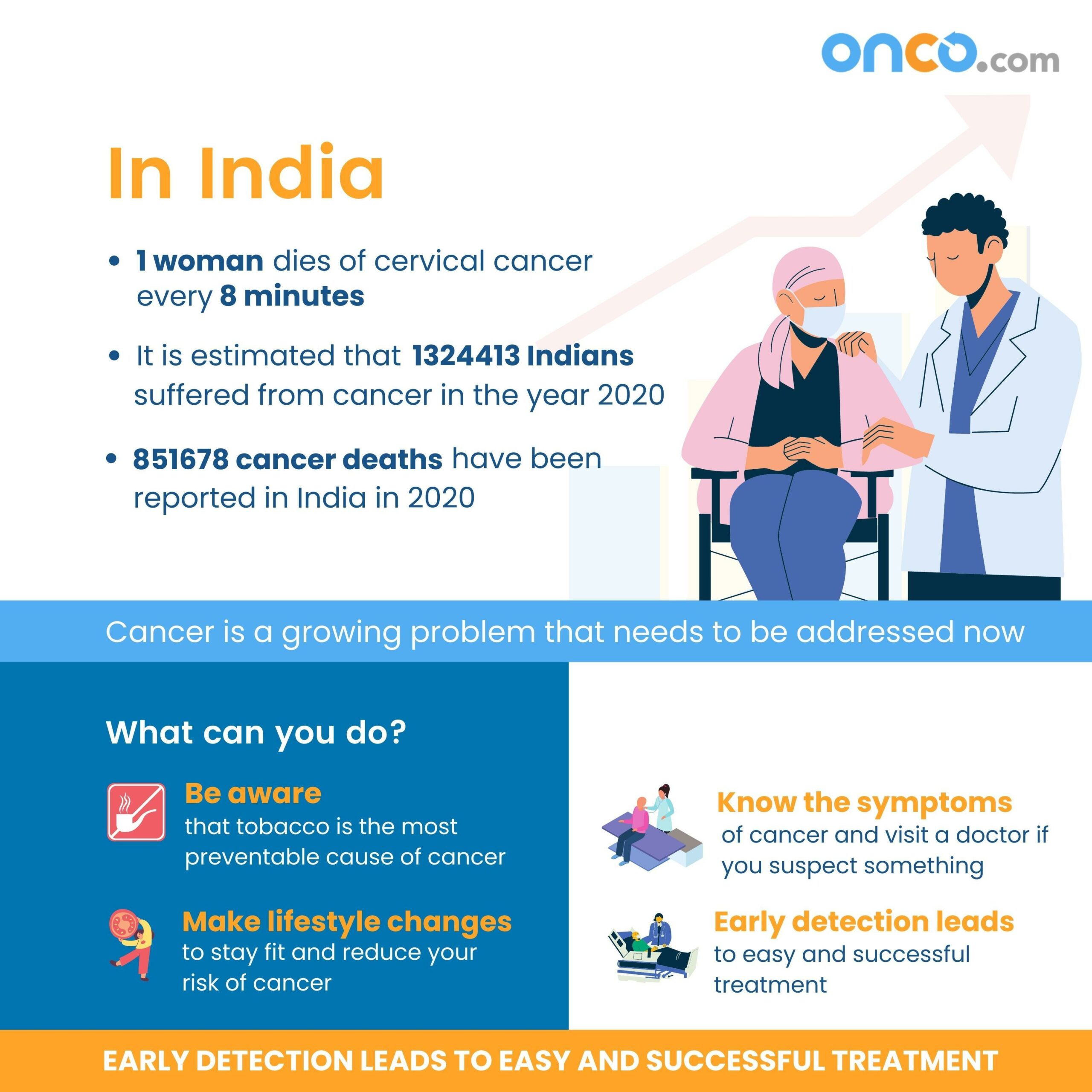
70% of the factors that lead to cancer are preventable. These include chemical and atmospheric pollutants, unhealthy eating habits, a sedentary lifestyle and infections.
Let’s understand what we can do this National Cancer Awareness Day to reduce our own risk of cancer, enable early detection of the disease and keep ourselves and our loved ones safe.
-
Know the symptoms of cancer
For some types of cancers, knowing the symptoms can help you detect your cancer while it is still in the early stages. Early detection allows for a more successful treatment and a much higher chance of survival.
Different cancers tend to have different symptoms depending on the organ that is affected. But here are some common symptoms that should prompt you to visit your doctor at the earliest:
- Pain in any part of your body that is constant and without any known reason
- Sudden weight loss without any known reason

- Extreme tiredness all the time
- Fever that does not subside or keeps coming back
- Changes in skin colour or texture
- Lumps in any part of the body, painful or painless
- Unusual discharge or bleeding from any part of the body
- Sores or ulcers on skin or mouth that don’t heal
If you notice the above symptoms in yourself or a loved one, consult a doctor to rule out any other problems. These symptoms do not always mean that you have cancer. There can be many non-cancerous reasons for these, but you will still need to consult a doctor at the earliest.
-
Go for cancer screening
If you have had cancer in your family, or if you have been using tobacco (in any form) for a long period of time, your risk of cancer may be higher than others. Speak to your doctor about what screening tests will be suitable for you so that you can catch cancer while it is still in the early stages.
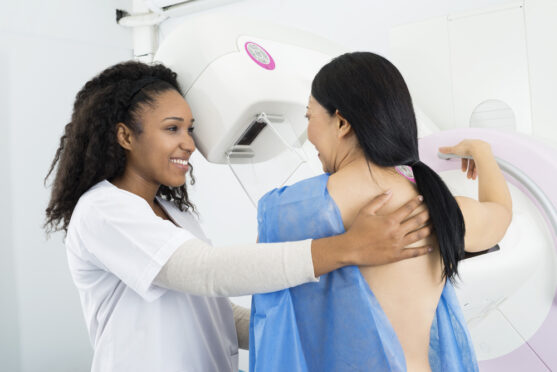
For breast cancers, women over the age of 40 are advised to have a mammography done every year or every alternate year, depending on their risk for cancer. Similarly, for cervical cancer, a pap smear can help identify the disease even before it reaches stage I.
Not all types of cancers have screening tests. Get an annual health check so that any abnormalities are spotted at the earliest.
A dentist will be able to spot any symptoms of oral cancer in your mouth and lips.
You can read more about screening tests that might be suitable for you here.
-
Get vaccinated
Certain cancers can be largely prevented through vaccination. For example, most cases of cervical cancer can be prevented through vaccination at the age of 13, or before there has been any chance of being exposed to the HPV virus which is sexually transmitted.
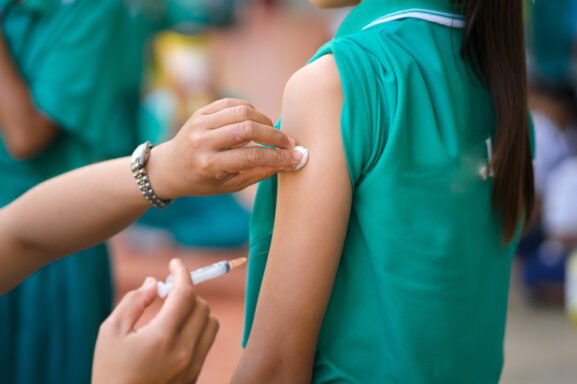
You can read more about the dosage and schedule of the HPV vaccine here.
Even though cancers like liver cancer do not have a specific vaccination, being vaccinated against Hepatitis viruses does decrease your risk of liver cancer. You can read more about this here.
-
Avoid tobacco
Tobacco is the most preventable cause of cancer. It increases your risk of several types of cancer.
If you or your loved one is addicted to smoking, you have the choice of consulting a counsellor who will help you quit the habit through practical steps.
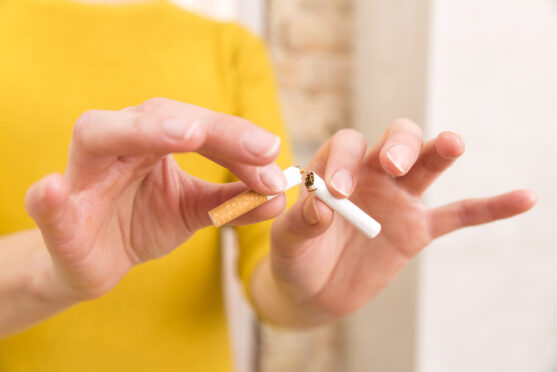
You can read more about smoking and cancer here.
-
Stay physically active
A sedentary lifestyle can lead to obesity. Obesity is linked to numerous diseases and cancer is one of them.
Maintain an optimal weight, and staying active reduces your risk of several types of cancer and also improves your chances of survival if you are ever diagnosed with cancer.
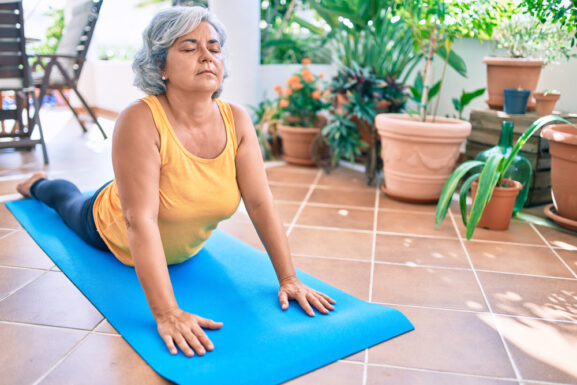
Even moderate amounts of exercise such as 30 minutes of aerobic exercise, five times a week, can cut down your risk considerably. Here are some ideas on how you can be more physically active daily.
-
Follow a balanced, healthy diet
A diet that is high in refined carbohydrates, sugars, processed foods and red meat increases your risk of cancer. Such foods also lead to chronic inflammation in the digestive system leading to several other diseases including type 2 diabetes and heart disease.

An anti-inflammatory diet is one that is rich in green leafy vegetables like spinach, fresh fruits and vegetables, healthy fats like olive oil, lean meats like salmon and nuts like almonds and walnuts.
Since excessive consumption of alcohol and red meat increase your risk of cancer, it’s important to limit these in your daily diet. Other steps can include replacing refined flours with whole grains, and avoiding deep fried foods can also help cut down your risk.
Spread the word!
This National Cancer Day, spread the word on cancer prevention among your colleagues and friends as well. You can also join our monthly free webinars on cancer prevention to keep yourself updated and well-informed. Email us at community@onco.com to know more about these events. Afterall, when it comes to cancer, ignorance is not bliss.

